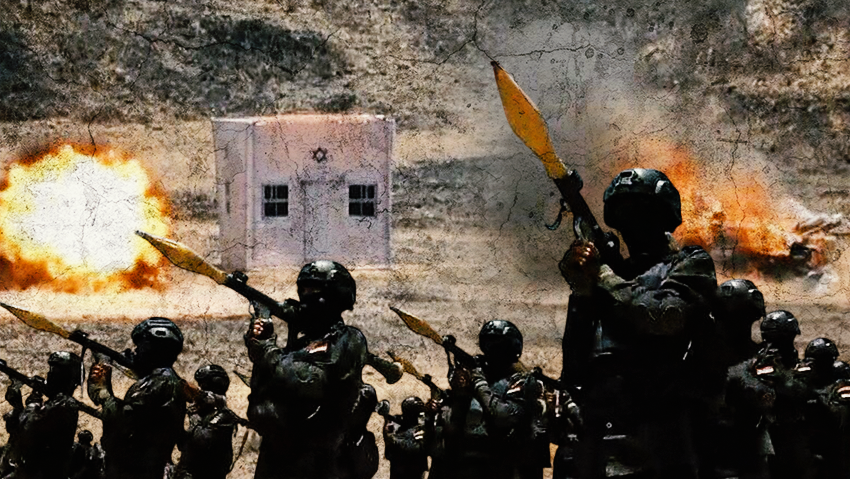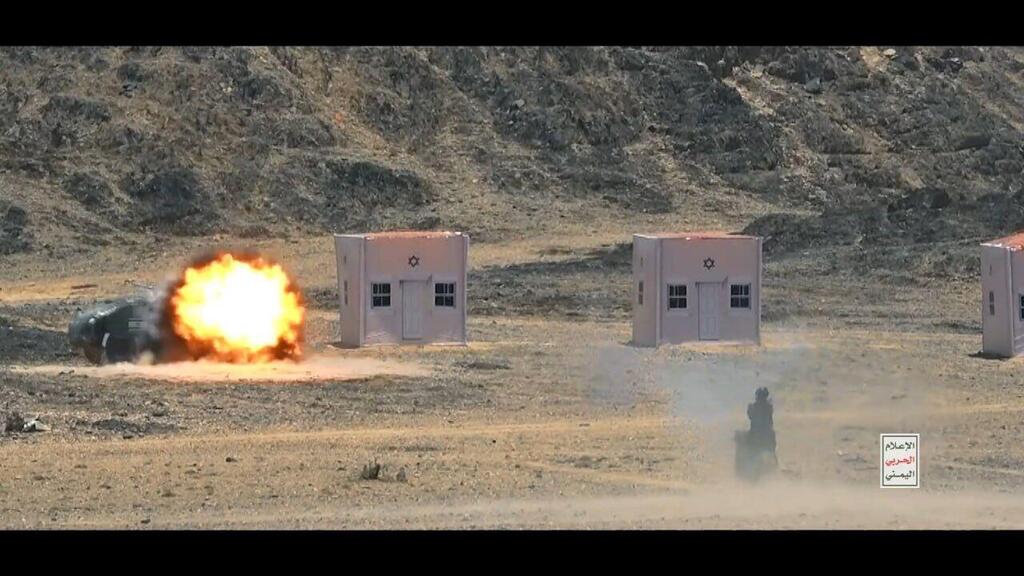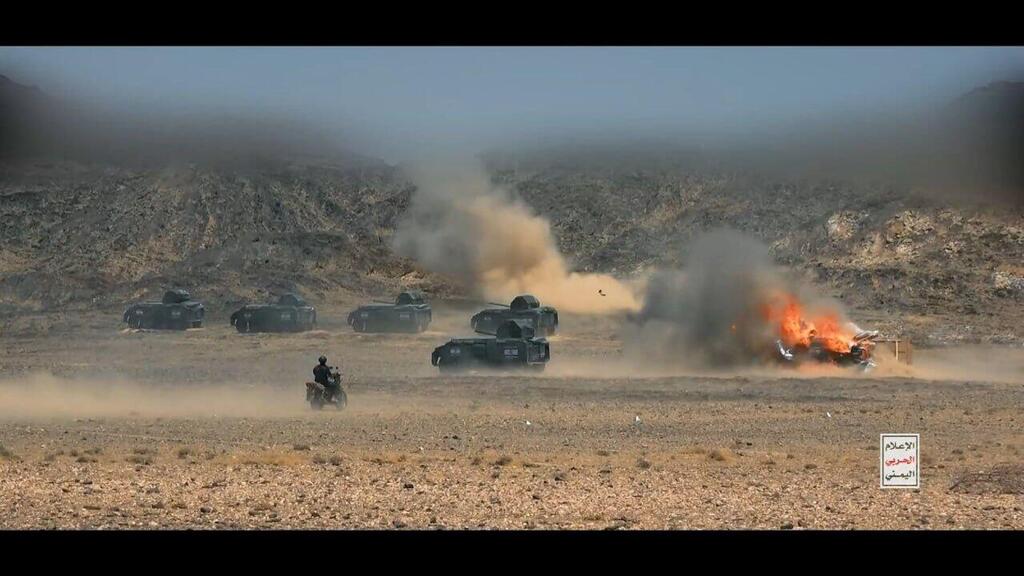Iranian-backed Houthi forces in Yemen are intensifying their military threats against Israel and appear to be adopting tactics and propaganda methods modeled after Lebanon’s Hezbollah.
New footage released by the Houthis shows terrorists riding motorcycles and simulating attacks on mock “Israeli” buildings—part of a drill labeled as preparation for “confrontation with the Zionist enemy and its supporters.”
Houthi propraganda video showing military drills
The video, published this week, resembles Hezbollah’s own publicized drills simulating an invasion of northern Israel and includes terrorists firing at targets painted with Israeli flags. The Houthis captioned the footage: “You are not alone,” in reference to Gaza.
Despite the recent ceasefire between Israel and Iran, Houthi missile and drone attacks against Israel have continued. While most have failed to cause significant damage, the terror group has made clear that its operations will persist as long as the war in Gaza continues.
Beyond military threats, the Houthis are expanding their strategic ambitions. With former Syrian President Bashar Assad’s regime no longer able to serve as the primary producer of captagon—a powerful amphetamine pill previously manufactured and smuggled from Syria by Hezbollah and the Assad regime—the Houthis appear to be stepping into the role.
This week, Yemeni security official Mataher al-Shaibi, based in the internationally recognized government’s capital of Aden, revealed that the Houthis have established a captagon production facility in northwest Yemen.
Get the Ynetnews app on your smartphone: Google Play: https://bit.ly/4eJ37pE | Apple App Store: https://bit.ly/3ZL7iNv
According to al-Shaibi, the plant operates under the direct supervision of senior Houthi leaders and mirrors the operation once run out of Syria. The drugs are reportedly smuggled to southern Yemen and across the border into Saudi Arabia.
He warned that the drug network has become a critical financial pillar for Iran’s proxies in Yemen and that authorities have thwarted multiple recent smuggling attempts. “This presents a severe threat to the security and stability of Yemen and the entire region,” al-Shaibi said.
Yemeni Information Minister Moammar al-Eryani echoed that concern, writing on social media that the Houthis’ adoption of drug trafficking as a terror-financing tool marks a new chapter in Iran’s regional strategy. “With Assad’s role diminished, the Houthis have stepped in to produce and smuggle captagon, exploiting pharmaceutical facilities in Sana’a for production,” he said.
Al-Eryani urged the international community to act decisively, warning that the threat posed by the Houthis now extends beyond ballistic missiles and drones. “Unchecked, the Houthis will transform Yemen into a regional hub for narcotics trafficking, jeopardizing security across the Gulf,” he said.
Meanwhile, Al Arabiya reported new figures highlighting heavy losses sustained by Hezbollah since the war began. According to sources cited by the Saudi outlet, more than 4,000 terrorists have been killed and over 3,000 wounded.
The report also claims that 2,000 terrorists left the organization voluntarily, many of them following the reported assassination of former Hezbollah leader Hassan Nasrallah.
Military sources added that over 80% of the area south of the Litani River is now under the control of the Lebanese military and that most of Hezbollah’s heavy and medium weaponry has either been confiscated by the Lebanese army or destroyed by Israeli forces.











